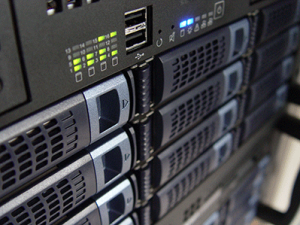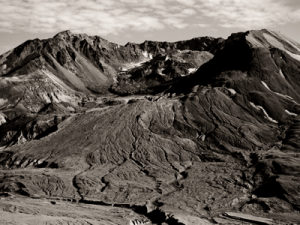To have a website, you need 2 things, an address to let people know where it is, and a computer that stores the site data and serves it out to people asking for it. The address is your domain name, e.g. “moderninterface.com.” The computer where your site lives, is called the server, or “host.”
Theoretically, you could host your website on your home computer, but processing power and bandwidth limitations would make for a very slow site for you users. Also if your electricity went out, so does your website.
 The next best option is to pay a hosting company, such as Godaddy, to host the site for you. They operate the server, usually in a large data center, where there are very fast connections available. This leads to an acceptable level of performance, but these discount hosting companies have to pack many sites onto each server to turn a profit. All those sites competing for processing power leads to sluggish response times.
The next best option is to pay a hosting company, such as Godaddy, to host the site for you. They operate the server, usually in a large data center, where there are very fast connections available. This leads to an acceptable level of performance, but these discount hosting companies have to pack many sites onto each server to turn a profit. All those sites competing for processing power leads to sluggish response times.
The crème de la crème of hosting is to rent a dedicated server, which means that you have all the processing power and bandwidth for your site alone. This introduces it’s own set of problems however, such as maintaining the server, and the much higher cost.
The winning solution
Modern Interface is dedicated to making sure you and your users have the best experience possible. Our solution to the hosting conundrum is to rent dedicated servers and put just the right number of sites on each server to keep the cost down, but not so many that performance starts to suffer. We manage the technical details (such as security, speed optimization, backups and OS updates), so you don’t have to worry.
Disaster? No Problem.
 Currently, we host our staging and production West Coast websites from a California data center. We back both up daily to two separate servers, in addition to copies on our local development machines. That way, if Mt Hood erupts, and Portland turns into Pompeii II, you’re site would happily keep on running. Or if the “Big One” hits, and California slides off into the Pacific, we’d still be able to fire up a new server and restore your site in less than an hour. But let’s hope neither happens.
Currently, we host our staging and production West Coast websites from a California data center. We back both up daily to two separate servers, in addition to copies on our local development machines. That way, if Mt Hood erupts, and Portland turns into Pompeii II, you’re site would happily keep on running. Or if the “Big One” hits, and California slides off into the Pacific, we’d still be able to fire up a new server and restore your site in less than an hour. But let’s hope neither happens.



